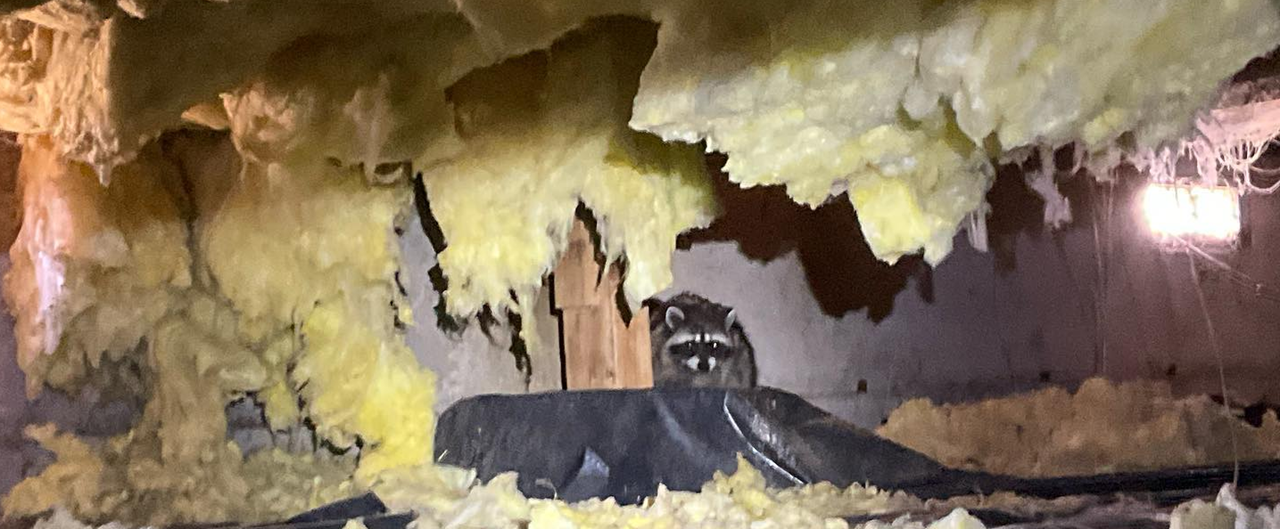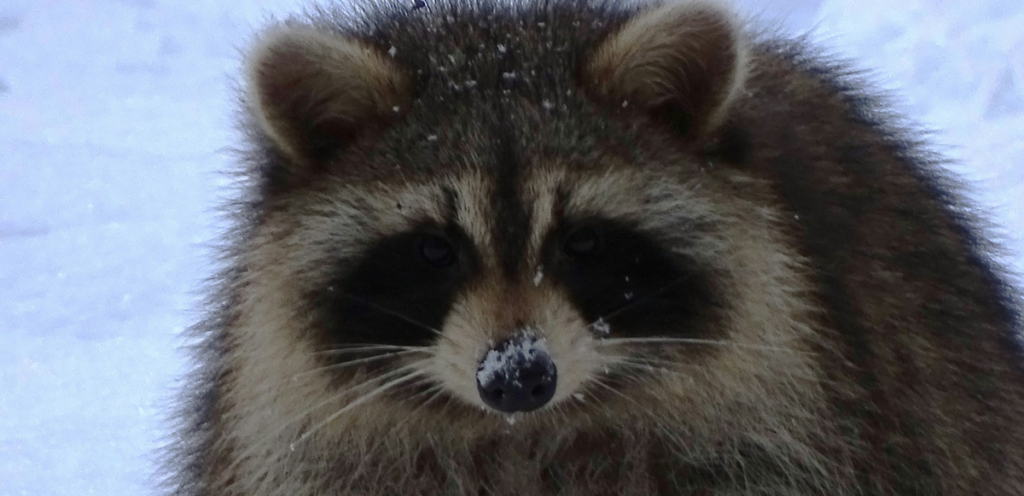
Raccoons do not hibernate. Raccoons are active year-round, and cold-weather could drive them to seek shelter in your house.
When the weather gets cold, they enter a dormant state called torpor. During this time, raccoons slow their metabolism and fall asleep in their dens, with their tails wrapped around them for warmth. Unlike hibernation, it only lasts a few weeks.
Need Help with Raccoon Infestation?
Find a Critter Control near you.
Raccoons in the Winter
Raccoons have thick coats, nimble hands, and clever minds. They are resourceful and quickly adapt to all styles of living, including in urban areas. They must prepare for seasonal changes, especially in winter when it is not easy to scavenge for food. While some animals prepare to hibernate for the winter, raccoons prepare for torpor, a semi-hibernation.
Torpor typically occurs when temperatures fall below 15 degrees. Other times raccoons are actively searching for food. Because they don’t store food, they must rely on whatever they can find daily. As omnivores, they have many more options than some wildlife. You may even see a raccoon out during the day searching for food before the temperatures drop too low.
Omnivores will eat just about anything. Raccoons eat bugs, nuts, fruits, vegetables, small rodents, human garbage, pet feed, fish, bird eggs, and more. Before winter, raccoons eat as much as possible to build an extra layer of fat on their bodies and tails. Raccoons are not afraid to enter your home through pet doors if they smell food.
Most raccoons like to be alone, but in colder climates, they may choose to den with other raccoons. This may be one reason raccoon mating season usually occurs from January to March.
Where Do Raccoons Live During the Winter?

When not eating, raccoons must secure a den for the winter. Most often, raccoons choose hollow spaces in trees, brush piles, rock crevices, and fallen logs. Raccoons are lazy, and rather than building their den, they are likelier to steal shelter from another animal.
Raccoons are well-known for creating a warm den inside your home. They prefer attics, porches, sheds, crawlspaces, and chimneys. Raccoons are avid climbers and can sneak into your home through small spaces, like broken screens or windows.
Once they choose a den, raccoons will make it warmer by filling it in with leaves, twigs, bark, garbage, and anything else they can find.
Raccoon in Your House
Raccoons living in your house will rummage through your items in search of food or den materials. Suppose they are in your attic. If they can access personal, sentimental treasures, they will. Expect damage to insulation, drywall, wood beams, and pipes. They may damage wiring and create fire hazards by plugging pipes and ducts.
Raccoons create a toilet area, a latrine where they leave feces and urine. It can form a big pile in a short time. As it piles up, the waste runs down floorboards and seeps into your living spaces below. Stains on your ceilings and walls are noticeable, and a foul odor is present.
Signs of Raccoon Activity in the Winter
Don’t wait until winter to check for signs of raccoons. They occur all year, and the sooner you get rid of a raccoon, the better. Raccoons do things that not all animals do, like tipping over garbage cans and scattering trash. Other signs include damaged gutters, fencing, porches, and entry doors to crawlspaces, basements, and attics.
You may notice tracks or footprints around your home, missing chickens from your coop, missing crops from a garden, and holes in your lawn. Raccoons are not quiet animals. Audible signs include stomping and shuffling, like how humans walk. Raccoons make noises that are sometimes mistaken for other wildlife. For example, they screech like an owl, bark, growl like a dog, hiss like a cat, and chirp like a bird.
What to Do About a Raccoon in Your Home
It is never a good idea to try and remove a raccoon yourself. They are known carriers of diseases, including rabies. If they feel threatened, they are likely to attack. They carry bacteria that can lead to salmonella poisoning. Plus, they are filthy, greasy animals that can host a variety of ticks, fleas, and other insects.
Calling a professional wildlife control operator is the best solution. They have safe and humane traps, snare poles, and protective gear. They know the regulations, and if your county wants to test for diseases, they know where to take them. Wildlife experts also know how to relocate newborns with their mothers after removal.
Using a three-step process of inspection, removal, and repairs, you can have confidence that your raccoon problem is resolved. In addition, professionals implement exclusions to prevent future raccoon troubles. But you don’t have to wait until after a raccoon invasion to start prevention methods. Our technicians are happy to help you secure your home now.
Get them out.
Keep them out.®
Experiencing a wildlife or pest issue? We can help! Complete this form and your local Critter Control® office will contact you to assist.
- How to Get Rid of Raccoons
- Are Raccoons Dangerous?
- Raccoon Trapping Service
- Raccoon Control
- Baby Raccoons
- Dead Raccoon Removal
- Raccoon Diseases
- Raccoon Damage
- Raccoon Diet
- Raccoon Poop
- Raccoons In Yards
- Raccoons in Basements
- Raccoons in Chimneys
- Raccoons in Crawl Spaces
- Raccoons in Houses
- Raccoons in Trash
- Raccoons in Trees
- Raccoons in Walls
- Raccoons on Roofs & in Soffits
- Raccoon Sounds
- Raccoon Tracks
- Raccoons in Attics & Ceilings
- What Does a Raccoon Look Like?